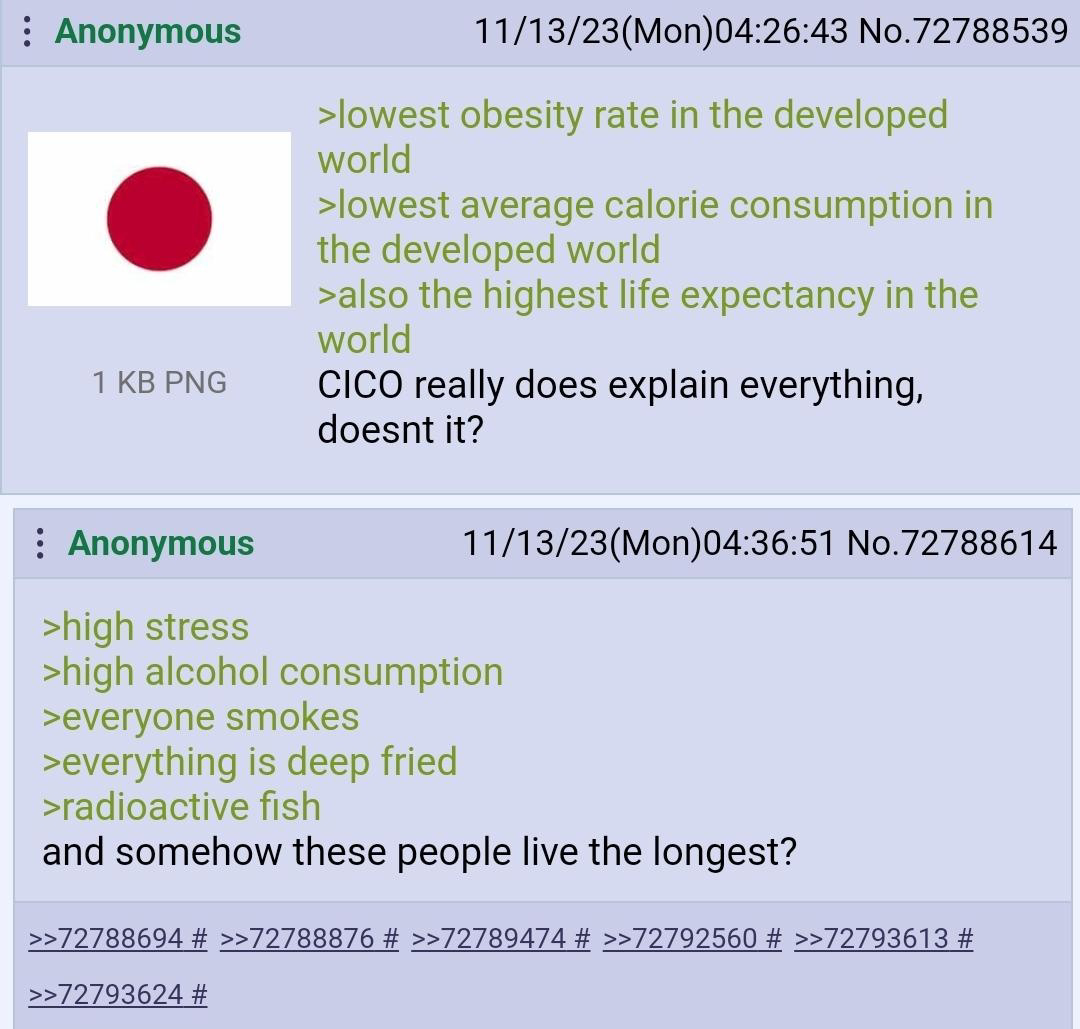this post was submitted on 22 Nov 2023
234 points (96.8% liked)
Greentext
5231 readers
1754 users here now
This is a place to share greentexts and witness the confounding life of Anon. If you're new to the Greentext community, think of it as a sort of zoo with Anon as the main attraction.
Be warned:
- Anon is often crazy.
- Anon is often depressed.
- Anon frequently shares thoughts that are immature, offensive, or incomprehensible.
If you find yourself getting angry (or god forbid, agreeing) with something Anon has said, you might be doing it wrong.
founded 1 year ago
MODERATORS
you are viewing a single comment's thread
view the rest of the comments
view the rest of the comments

The real secret is that they have amazing mass transit infrastructure which makes for extremely walkable cities. Only about 10% of Japanese people own a car and so they probably get way more exercise just from living day to day than the average American gets in a week.
Plus Japanese 7-11 is considered decent food. Compare to 7-11 here where any food is a combination of salt, more salt, and sugar, with maybe some protein or carbs. I imagine this quality difference expands to other establishments as well.
7-11 is apparently a great place to get sushi in Japan.
I think it's the other way around. Mass transit greatly benefits from walkable cities because that means distances are shorter which in turn makes the whole system cheaper to build and operate.
Walkable cities are created by not emphasizing car infrastructure which necessitates good mass transit because people still need to get around which creates a more walkable city, etc. It's kind of a chicken and egg situation, they're both the cause and effect of each other in an endless cycle.
No disagreements there, I was just thinking more in the sense that their cities are very dense and have zoning laws which allow residences, industries and commercial spaces to coexist side-by-side, often in the same lot. That can make for pretty walkable places even without good mass transport.
Exactly and the process of switching sucks for everyone. It’s something we still need to do, but people need to be prepared for a system where the trains are running at a loss, there’s not enough parking, and there’s traffic jams. Incidentally that’s basically what it’s like as a city outgrows car infrastructure.
I’ve alternated living in the US and in Germany, for a couple of years in each place. My no exercise, not eating especially well weight is about 40 lbs heavier in the US. I was fine in the US with significant exercise commitments, but when I was schlubbing around, I was about 180 lbs at 5’10”, whereas I’m now about 140, even though I’m a decade older.
I had a health checkup after several years in the US, at a time when I was a vegetarian with no sweet tooth, who didn’t drink or smoke and did 14 hours of hard cardio (step dancing) a week. My ldl cholesterol was 180.
After a couple years in Germany, I’m now a five year older vegan who eats a worrying amount of gummy bears, drinks occasionally, smokes 4-5 spliffs without a real filter daily (I know, I’m trying to stop), and doesn’t add any exercise to my life. My ldl is 125.
I know that cheese isn’t great for you, but that’s not enough to make that big a difference. The lifestyle I had in the US was endangering me, even though I was trying really, really hard to live “right.” I’m making frankly terrible health decisions here and I’ve been rewarded by getting to eat whatever I want without gaining weight or negatively affecting my cholesterol.